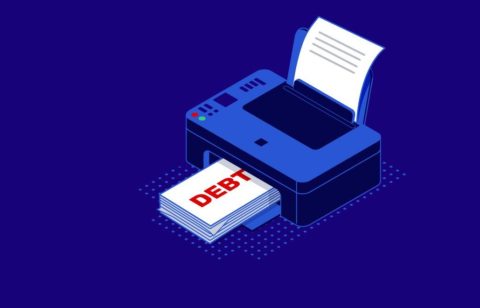Consumer debt stands at $16.90 trillion in the United States, with over $986 billion in outstanding credit card debt. So, if you’re like many Americans struggling with debt who own a home, you have probably asked yourself, “Should I take out a home equity loan to consolidate my debt?” The short answer is it depends.
While the risks associated with these loans tend to be higher, the interest rates and monthly payments are typically lower than other debt payment options. This benefit often makes them an attractive option.
What Is A Home Equity Loan?
A home equity loan enables you to borrow money based on the value of the equity in your home, minus the amount of any mortgage. It uses the home as collateral if you should default. There is a risk because if you can’t pay back the loan for any reason, the lender could foreclose on your home.
There are two basic type of home equity loans:
A fixed-rate loan –
This is a standard lump sum payment, which is usually repaid between 5-15 years at an agreed-upon interest rate. It’s important to note that both the payment and interest rate remain the same throughout the life of the loan. That means that as inflation rises, your locked terms won’t.
A home equity line of credit (HELOC) –
This provides a pre-approved credit limit that allows you to choose how much you borrow against the equity in your home. The draw period typically lasts 5-10 years and is then followed by a 10 to 20-year repayment period in which withdrawals are no longer permitted.
These types of loans come with upfront fees and costs. So, it is important to compare more than just the monthly payment when you are in the process of selecting one.
*Before making any decisions about your tax returns, ensure you discuss your eligibility to deduct interest on your home equity loan or home equity line of credit (HELOC) with a tax professional.
The Benefits of Home Equity Loans
As you ponder whether a home equity loan is a good idea, it’s important to weigh the pros and cons. One of the biggest advantages these loans offer relative to standard debt consolidation loans is that lenders typically offer them at lower interest rates than other types of loans. They can do this since HELOCs are secured with the collateral of your home,
A lower interest rate means your monthly loan payments should be more affordable. In some cases, due to high levels of outstanding debt and/or a low credit rating, getting a secured loan such as a HELOC or home equity loan may be your only choice for debt consolidation. Finally, you can often deduct the interest from a home equity loan when filing your income taxes.
The Drawbacks of a Home Equity Loan
While there are some great advantages, there are also some drawbacks you should take into consideration before making a decision.
The biggest disadvantage to home equity loans and HELOCs is the overall risk. Unlike a standard unsecured debt consolidation loan, you could risk foreclosure and lose your home if you default. Additionally, if home prices in your area drop substantially, you could end up owing a substantial amount.
As you consider this loan, ensure that you are confident in your ability to pay it back before putting your home on the line.
Ensure Home Equity Is a Good Fit
Something else to consider is whether that loan will truly help you address your debt issues. If you rely heavily upon credit cards and revolving debt for your personal spending, consolidation won’t necessarily be effective. You first need to address the root causes that landed you in debt in the first place.
Moreover, if your debt issues have become more serious due to a cut in work hours or a job loss, taking out additional debt may put you in an even more precarious financial position.
If this is the case, another method such as debt settlement may be a better option. If you are altogether unsure about how to address your outstanding debts, you should seek out the advice of a debt counselor or some other trusted financial advisor. They can help you determine if a home equity loan is a good fit for your personal financial situation.
A home equity loan for debt consolidation could be a great option—it all depends on your financial situation. Before you decide to take one out, speak to a professional first. They can determine if this type of loan offers you the biggest bang for your buck without the risks outweighing the rewards.







